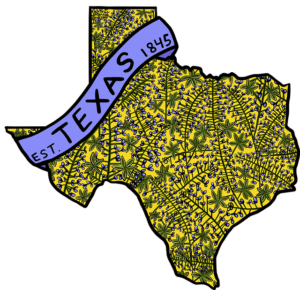
The Longhorns head coach sees it as bigger than the on-field results.
The contest over the legacy of former Texas Longhorns quarterback Quinn Ewers has shifted in tone and content since the three-year starter fell into the seventh round of the 2025 NFL Draft late last month, a remarkable fall for a player once considered a generational quarterback talent.
Under contention were questions about whether his career accomplishments in college could stand up to the scrutiny of his recruiting rankings not matching his late-round selection and questions about whether he made a mistake by not entering the NCAA transfer portal to play a final season of college football.
The baseline elements of Ewers’ legacy on the Forty Acres are a simple list of his accomplishments — starting at quarterback for three years, not losing a road game since Oklahoma State in 2022, winning a Big 12 title, competing for an SEC championship in the program’s first season in the conference, taking the Horns to back-to-back College Football Playoff semifinals.
But those are just the baseline elements.
“His legacy is way bigger to me than just that,” Texas head coach Sarkisian said in an appearance on the Pate State Speaker Series this week.
“Because if Quinn Ewers doesn’t come, I don’t know if the next five guys are coming, right? And if those next five guys don’t come, I don’t know if the next 10 guys are coming. And then if those 10 guys don’t come, I don’t know if the next 20 guys are coming. So that was a huge deal for him to want to come be part of our program, that he could see the forest through the trees about where we were headed as a program.”
One of the most significant elements of Ewers’ legacy is how he decided to leave Texas, declaring for the draft instead of pursuing other chances in the transfer portal with reports that he could command as much as six to eight million dollars on the open market.
The potentially lucrative decision would have risked Ewers putting himself on a collision course with the Longhorns in next year’s College Football Playoffs, seismically shifting his legacy as one of college football’s most remarkable transfer stories, a shift in an unquestionably negative direction.
The criticism of Ewers for passing up so much money further represents an odd narrative shift surrounding one of the initial avatars for the burgeoning NIL era as Ewers re-classified and enrolled during preseason camp at Ohio State in 2021 while signing a seven-figure endorsement deal with a kombucha company, spurred by state legislation that banned high school players from receiving NIL compensation.
An interview with Sarkisian at the Houston Touchdown Club last week revealed another layer in that narrative — in his three years at Texas, Ewers never took any money from the school collective, instead making it entirely outside the school, a testament to his marketability and selflessness in allowing the Texas One Fund the opportunity to devote those resources elsewhere.
So it’s demonstrably unfair to Ewers to suggest that it’s always been purely about money for him, because it was always bigger than that — it was about fulfilling his lifelong dream of playing quarterback in burnt orange and white and building the best possible roster to help the program win.
There’s also a level of hypocrisy within a larger discourse that often criticizes players for making financially-motivated decisions to transfer to then pass judgement on Ewers for his personal decision to pass up millions of dollars on the open market, as Nicole Auerbach did at NBC Sports.
“All of a sudden, here’s Quinn Ewers, who decides not to go to another school to say, ‘You know what, I’ve left a legacy at the University of Texas, I’m gonna go chase my dreams and fulfill my dreams of playing in the NFL,’ and now those same critics, those same people, are saying, ‘How could he not go take that money?’” Sarkisian said.
The Texas head coach sounded sincerely frustrated by it all.
“Who are we to judge and criticize a young man who’s making a decision about his future, who’s only done things the right way to the best of his ability, who gave everything he could to our program and decided, ‘You know what, now is my time, it’s time for me to go on the next journey of life,’ and that’s trying to go play quarterback in the National Football League, and we’re here to support him, but to criticize him for not taking the money, like, what are we talking about?” Sarkisian wondered.
In a strange narrative choice, Ewers’ agent Ron Slavin contested the idea that Ewers wanted to leave his Texas legacy intact by declaring for the draft in pointing out the practical difficulties of trying to transfer after the Cotton Bowl, calling it “nearly impossible.”
“The reality of it is the way the portal schedule is set, it was not possible for Quinn because he didn’t want to be talked to about the portal. When they beat Arizona State on Jan. 1, the next game was Jan. 10,” Slavin told ESPN.
“If he was going to commit to Miami or Notre Dame, he’s going to do that while his team’s got a playoff game in a week? And his teammates are going to look at him like, ‘You’re going to another school if we lose?’ You can’t do that.”
Former Georgia quarterback Carson Beck committed to Miami on the day that Texas played Ohio State.
As the draft fades into the distance, the discussion surrounding Ewers’ decision to turn pro instead of entering the transfer portal will die down and he’ll start creating his professional legacy, which will in turn shift some perceptions of his career with the Longhorns.
The extent to which Arch Manning has success as the starter will influence opinions about whether Ewers blocked the younger quarterback from achieving greater success in 2024, but the baseline elements will always remain static, as well as the bigger part of his legacy that Sarkisian discussed — Ewers’ decision to come to Texas was a catalyst for the subsequent rising talent levels in addition to the undeniable reality that he left the Longhorns program better than he found it.



